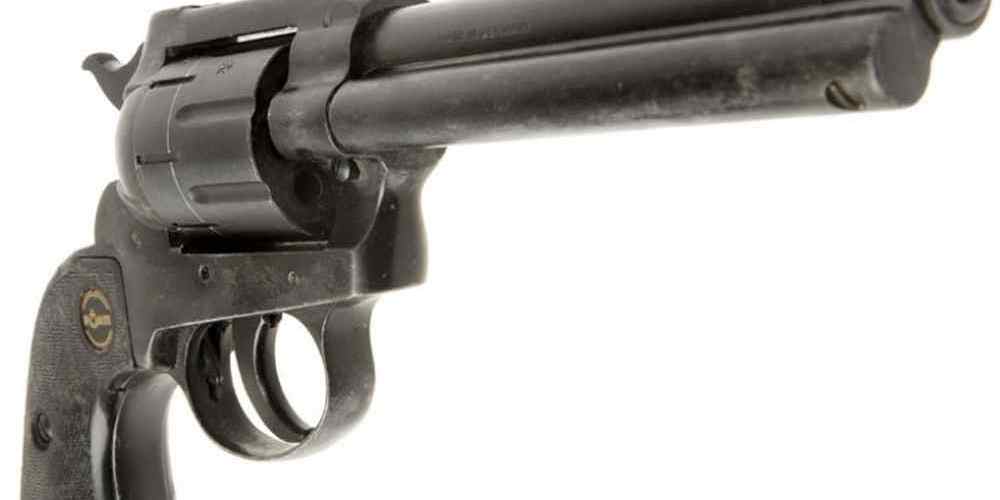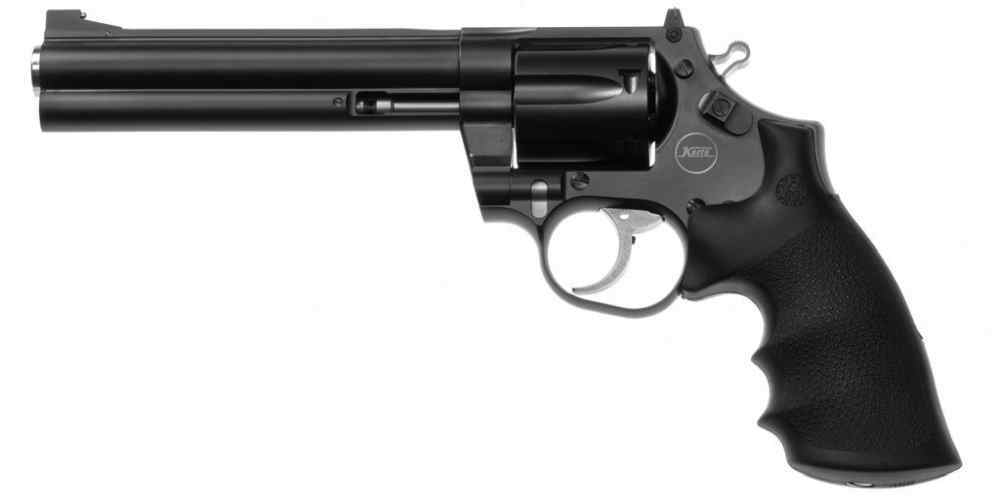“Gun control policies: a double-edged sword for minorities.”
Racial Bias in Gun Control Legislation
Gun control policies have been a hotly debated topic in the United States for many years. While the intention behind these policies is often to reduce gun violence and keep communities safe, there is growing concern that these laws may disproportionately affect minority populations. Racial bias in gun control legislation is a complex issue that requires careful examination.
One of the main ways in which gun control policies can disproportionately affect minorities is through the enforcement of these laws. Studies have shown that minority communities are often targeted for stricter enforcement of gun laws, leading to higher rates of arrests and convictions for gun-related offenses. This can have a devastating impact on these communities, as individuals may face harsher penalties and longer prison sentences for the same offenses as their white counterparts.
Additionally, the implementation of background check requirements and waiting periods for purchasing firearms can also have a disparate impact on minority populations. Research has shown that these policies can create barriers to legal gun ownership for individuals who may already face systemic barriers to accessing resources and services. This can leave minority communities vulnerable to violence and crime, as they may be unable to protect themselves and their families.
Another way in which gun control policies can disproportionately affect minorities is through the stigmatization of certain communities as inherently violent or dangerous. This can lead to increased surveillance and policing of these communities, further perpetuating negative stereotypes and biases. As a result, individuals in these communities may be unfairly targeted and treated as suspects simply based on their race or ethnicity.
Furthermore, the lack of diversity in the development and implementation of gun control policies can also contribute to racial bias. When policies are created without input from minority communities, they may fail to address the unique challenges and needs of these populations. This can result in policies that are ineffective at reducing gun violence and may even exacerbate existing disparities.
In order to address these issues, it is crucial that policymakers and advocates work to dismantle racial bias in gun control legislation. This can be achieved through a variety of strategies, including increasing diversity in decision-making processes, implementing community-based approaches to violence prevention, and advocating for policies that prioritize equity and justice.
By taking a comprehensive and inclusive approach to gun control, we can work towards creating a safer and more just society for all individuals. It is essential that we recognize and address the ways in which racial bias impacts gun control policies, and strive to create policies that are fair, effective, and equitable for all communities. Only then can we truly work towards reducing gun violence and creating a more just society for all.
Impact of Gun Violence on Minority Communities
Gun violence is a pervasive issue in the United States, with thousands of lives lost each year due to shootings. While gun control policies are often touted as a solution to this problem, it is important to consider how these policies can disproportionately affect minority communities.

One of the key ways in which gun control policies impact minorities is through the criminal justice system. Studies have shown that minority individuals are more likely to be arrested and charged with gun-related offenses than their white counterparts. This can lead to harsher penalties and longer prison sentences for minority individuals, perpetuating the cycle of inequality within the criminal justice system.
Additionally, gun control policies can also have a negative impact on the ability of minority individuals to defend themselves. In many cases, minority communities are disproportionately affected by crime and violence, making it essential for individuals to have access to firearms for self-defense. However, strict gun control policies can make it difficult for individuals in these communities to legally obtain firearms, leaving them vulnerable to violence.
Furthermore, the implementation of gun control policies can also exacerbate existing disparities in access to resources and opportunities for minority communities. For example, background check requirements and waiting periods for purchasing firearms can create barriers for individuals who may not have access to the necessary resources or time to navigate these processes. This can further marginalize minority communities and limit their ability to protect themselves and their families.
It is also important to consider the historical context of gun control policies and their impact on minority communities. Throughout history, gun control laws have been used as a tool to oppress and control minority populations. For example, in the aftermath of the Civil War, laws were enacted to disarm newly freed African Americans, leaving them vulnerable to violence and discrimination. This legacy of systemic racism and oppression continues to shape the impact of gun control policies on minority communities today.
In order to address the disproportionate impact of gun control policies on minority communities, it is essential to take a holistic approach to gun violence prevention. This includes addressing the root causes of violence, such as poverty, lack of access to education and healthcare, and systemic racism. It also requires engaging with communities directly affected by gun violence to develop solutions that are tailored to their specific needs and experiences.
Additionally, policymakers must consider the unintended consequences of gun control policies and work to mitigate any negative impacts on minority communities. This includes ensuring that individuals have access to resources and support to navigate the legal requirements for obtaining firearms, as well as addressing disparities in the criminal justice system that contribute to the disproportionate impact of gun control policies on minority communities.
In conclusion, gun control policies can have a significant impact on minority communities, exacerbating existing disparities and perpetuating systemic inequality. In order to address this issue, policymakers must take a comprehensive approach to gun violence prevention that considers the unique needs and experiences of minority communities. By working to address the root causes of violence and engaging with communities directly affected by gun violence, we can create a more equitable and just society for all.
Disparities in Gun Ownership Rates Among Minorities
Gun control policies have been a hotly debated topic in the United States for many years. While the intention behind these policies is often to reduce gun violence and keep communities safe, it is important to consider how these policies may disproportionately affect certain groups, particularly minorities. One area where disparities in gun control policies can be seen is in the rates of gun ownership among different racial and ethnic groups.
According to a study conducted by the Pew Research Center, white Americans are more likely to own guns than black or Hispanic Americans. The study found that 36% of white Americans reported owning a gun, compared to only 24% of black Americans and 15% of Hispanic Americans. These disparities in gun ownership rates can be attributed to a variety of factors, including historical and cultural differences, as well as socioeconomic disparities.
One factor that may contribute to the lower rates of gun ownership among minorities is the history of gun violence and discrimination against minority communities in the United States. For example, black Americans have a long history of being targeted and oppressed by law enforcement, which may lead to a distrust of the government and a reluctance to own firearms. Additionally, the prevalence of gun violence in urban areas, which are often populated by minority communities, may also deter individuals from owning guns.
Socioeconomic factors also play a role in the disparities in gun ownership rates among minorities. Research has shown that individuals with higher incomes are more likely to own guns, and minority communities are more likely to experience poverty and economic hardship. This means that many minority individuals may not have the financial means to purchase firearms, which can further contribute to the lower rates of gun ownership among these groups.
Another factor that may contribute to the disparities in gun ownership rates among minorities is the lack of access to firearms training and education. Many gun control policies require individuals to undergo background checks and complete training courses before purchasing a firearm. However, these requirements can be barriers for individuals who may not have access to resources or information about how to obtain a gun legally. This lack of access to training and education can further exacerbate the disparities in gun ownership rates among minorities.
In conclusion, disparities in gun ownership rates among minorities highlight the need to consider how gun control policies may disproportionately affect certain groups. Factors such as historical and cultural differences, socioeconomic disparities, and lack of access to training and education all play a role in shaping these disparities. As policymakers continue to debate and implement gun control policies, it is important to consider the impact that these policies may have on minority communities and work towards creating more equitable and inclusive solutions.
Historical Context of Gun Control Policies and Minority Groups
Gun control policies have been a hotly debated topic in the United States for decades. While the intention behind these policies is often to reduce gun violence and promote public safety, the impact of such measures on minority communities has been a point of contention. In order to understand how gun control policies disproportionately affect minorities, it is important to examine the historical context of these policies and their impact on minority groups.
Throughout American history, minority communities have faced systemic discrimination and oppression, which has had a significant impact on their access to firearms. For example, during the era of slavery, African Americans were prohibited from owning guns as a means of maintaining control over the enslaved population. Similarly, during the Jim Crow era, laws were enacted to prevent African Americans from owning guns, further limiting their ability to defend themselves against violence and discrimination.
In more recent history, the implementation of gun control policies has had a disproportionate impact on minority communities. For example, the War on Drugs in the 1980s and 1990s led to the implementation of harsh sentencing laws for drug offenses, which disproportionately affected African American and Hispanic communities. These laws not only resulted in mass incarceration of minority individuals but also limited their ability to legally own firearms, as felony convictions often result in a loss of gun rights.
Additionally, the implementation of background check laws and waiting periods for gun purchases has also had a disparate impact on minority communities. Studies have shown that these policies can disproportionately affect African American and Hispanic individuals, who are more likely to be denied gun purchases due to past criminal records or other factors. This can further exacerbate existing disparities in access to firearms and self-defense within minority communities.
Furthermore, the enforcement of gun control policies has also been shown to disproportionately target minority individuals. For example, stop-and-frisk policies in cities like New York have been criticized for disproportionately targeting African American and Hispanic individuals, leading to higher rates of gun confiscation and arrests within these communities. This not only erodes trust between law enforcement and minority communities but also perpetuates existing disparities in access to firearms and self-defense.
In conclusion, the historical context of gun control policies in the United States has had a significant impact on minority communities. From slavery to the War on Drugs, minority individuals have faced systemic barriers to owning firearms, which has limited their ability to defend themselves against violence and discrimination. The implementation and enforcement of gun control policies have further exacerbated these disparities, leading to disproportionate impacts on African American and Hispanic communities. In order to address these disparities, it is crucial to consider the historical context of gun control policies and their impact on minority groups, and work towards implementing more equitable and inclusive measures that promote public safety without disproportionately affecting minority communities.
Intersectionality of Race, Socioeconomic Status, and Gun Control Enforcement
Gun control policies have been a hotly debated topic in the United States for decades. While the intention behind these policies is often to reduce gun violence and keep communities safe, the way in which they are enforced can have unintended consequences, particularly for minority populations. When considering the intersectionality of race, socioeconomic status, and gun control enforcement, it becomes clear that these policies disproportionately affect minorities in a variety of ways.
One of the key ways in which gun control policies impact minorities is through the criminalization of certain communities. Research has shown that minority populations are more likely to be targeted by law enforcement for gun-related offenses, even when rates of gun ownership are similar across racial groups. This can lead to increased rates of incarceration and further marginalization of already vulnerable communities.
Additionally, the enforcement of gun control policies can exacerbate existing racial disparities in the criminal justice system. For example, studies have shown that black Americans are more likely to be charged with gun-related offenses and receive harsher sentences compared to their white counterparts. This unequal treatment can perpetuate cycles of poverty and disenfranchisement within minority communities.
Furthermore, the enforcement of gun control policies can have a negative impact on the mental health and well-being of minority populations. Research has shown that the fear of being targeted by law enforcement can lead to increased levels of stress and anxiety among minority individuals. This constant state of vigilance can have long-term consequences for mental health and overall quality of life.
In addition to the criminalization and stigmatization of minority communities, gun control policies can also have economic implications for these populations. For example, the cost of obtaining a gun license or permit can be prohibitive for low-income individuals, many of whom are minorities. This financial barrier can prevent individuals from exercising their Second Amendment rights and further marginalize already disadvantaged communities.
Moreover, the enforcement of gun control policies can perpetuate systemic inequalities that have long plagued minority populations. For example, the lack of access to legal resources and support can make it difficult for individuals in minority communities to navigate the complex legal system and defend their rights. This lack of representation can result in unfair treatment and further entrench existing disparities.
In conclusion, the intersectionality of race, socioeconomic status, and gun control enforcement highlights the ways in which these policies disproportionately affect minority populations. From the criminalization and stigmatization of communities of color to the economic barriers that prevent individuals from exercising their rights, it is clear that gun control policies can have far-reaching consequences for marginalized groups. Moving forward, it is essential to consider the impact of these policies on minority populations and work towards creating more equitable and just systems of gun control enforcement. Only then can we truly ensure the safety and well-being of all individuals, regardless of race or socioeconomic status.





